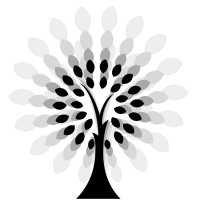Erida
Erida, literally meaning “Words” in the extinct ancient languageplugin-autotooltip__small plugin-autotooltip_bigLanguages
List of human languages and dialects, contemporary and extinct.
Language
language
This is in a series of articles about Languages and Communication.
topics sidebar cult1 Ahngrit, is the instinctual core language of the Eridai, or elementals, Eridai meaning “of the words”. The art of thaumaturgy can therefore be described as the structural use of Erida to perform physical outputs.
Magicplugin-autotooltip__small plugin-autotooltip_bigMagic
Magic, also called thaumaturgy is the art and science of harnessing elementals, and instructing them to carry out simple or complex tasks.
Invoking more powerful spirits or gods is a related but much more dangerous art, called theurgy.
Magic
magic
This is in a series of articles about
 plugin-autotooltip__small plugin-autotooltip_bigMagic
plugin-autotooltip__small plugin-autotooltip_bigMagic
Magic, also called thaumaturgy is the art and science of harnessing elementals, and instructing them to carry out simple or complex tasks.
Invoking more powerful spirits or gods is a related but much more dangerous art, called theurgy.
Magic
magic
This is in a series of articles about
This is in a series of articles about magic, thaumaturgy and esotericismplugin-autotooltip__small plugin-autotooltip_bigMagic
Magic, also called thaumaturgy is the art and science of harnessing elementals, and instructing them to carry out simple or complex tasks.
Invoking more powerful spirits or gods is a related but much more dangerous art, called theurgy.
Magic
magic
This is in a series of articles about.
Structure
Erida is a language consisting of a thousand monosyllabic phonemes, a large number of which refer to basic concepts or activities. The language is extended by putting morphemes together to form longer words of two or three syllables, which are assigned to more complex ideas or activities, or used as labels for specific people, places or things.
There are potentially over a million possible words, but in practice a large proportion of these are phonetically clumsy or difficult to pronounce. Most human languages seldom need more than 10,000 words, so since Erida is a much simpler language not required for the complexity of speech, most basic objects and actions are covered using only a thousand words.
Origin
According to most traditions, particularly in the Natorn Archipelago, the language was devised by the ancient Godmen as a means of being mastered by man. This has been disputed by some scholars who claim that word-forms evolved naturally as a means of communicating with each other, and were merely subverted by mankind.
Erida Name
In the Rasian Style of thaumaturgy, sorcerors have a name-label which is known only to the Master and his Primus. Since the prime protects the sorceror's physical body, this word is required for any kind of thaumaturgical interaction with the sorceror's body, such as medical treatment which is sometimes necessary. Many folk tales about magicplugin-autotooltip__small plugin-autotooltip_bigMagic
In common terms, magic is the art of producing a desired outcome through occult means. Various arts are described as magical, from common street illusionists, village herbalists, and rituals for the intercession of deities. However, true magic is the art and science of elemental mastery, harnessing elemental creatures and instructing them to perform simple or complex tasks. involve a search for the thaumaturge's “true name”, although in practice this rarely happened. Before the regime of the Magisters at Rasia, a sorceror could easily change is name if he thought it was given away or not secure. The Magisters changed the initiation ceremony so that they inserted a core sequent into the sorceror's prime from the very start, meaning that the Magisters would always potentially have control over any member of the academy.
